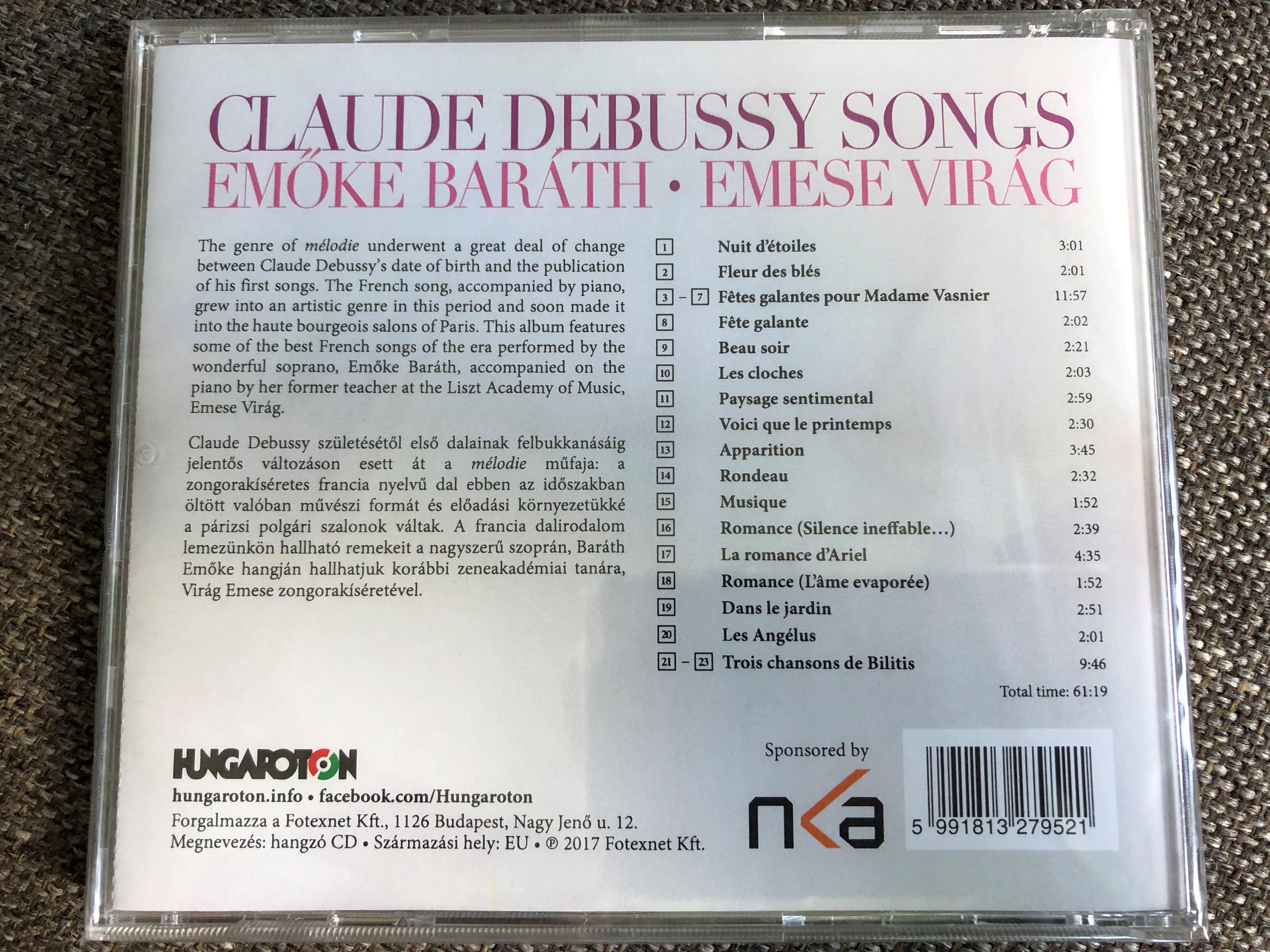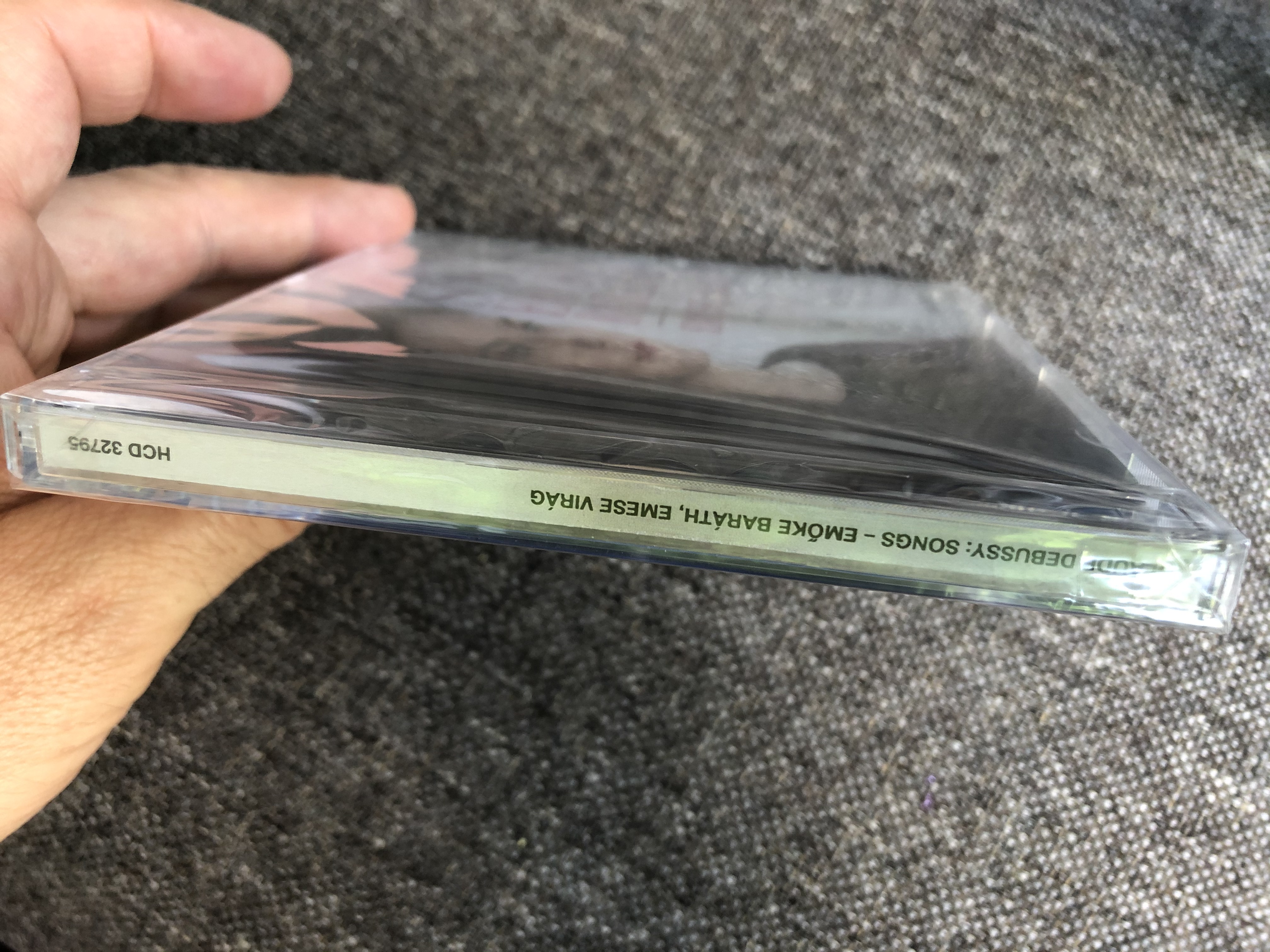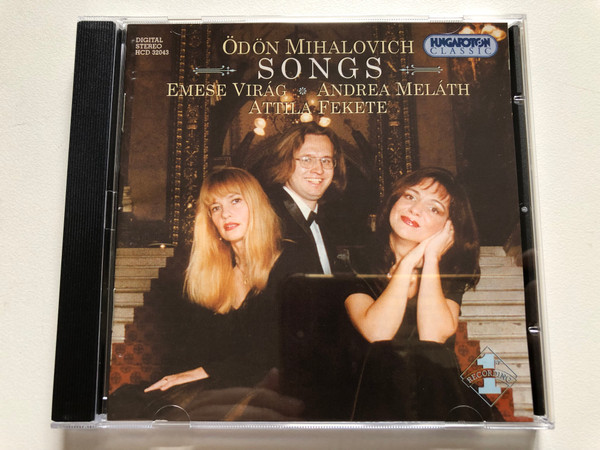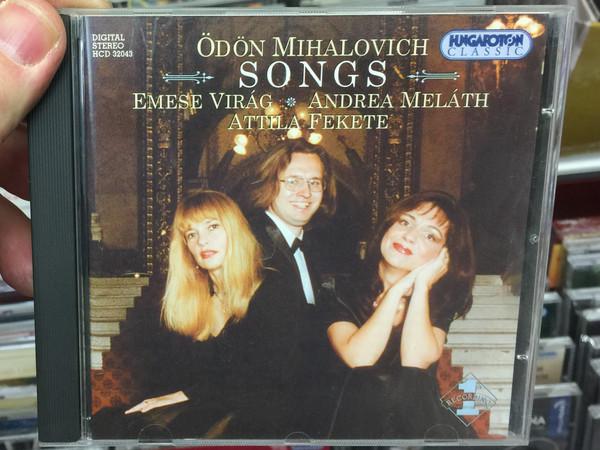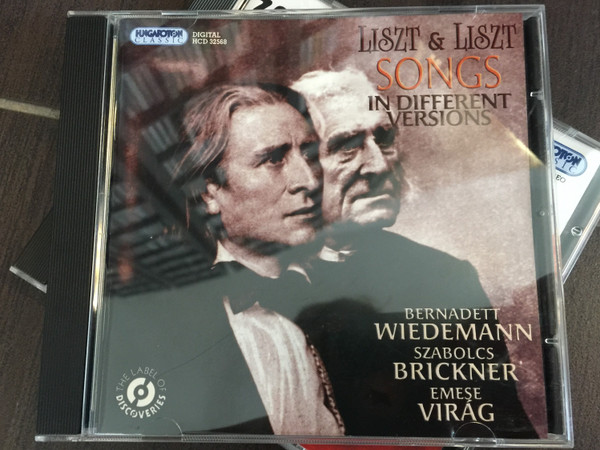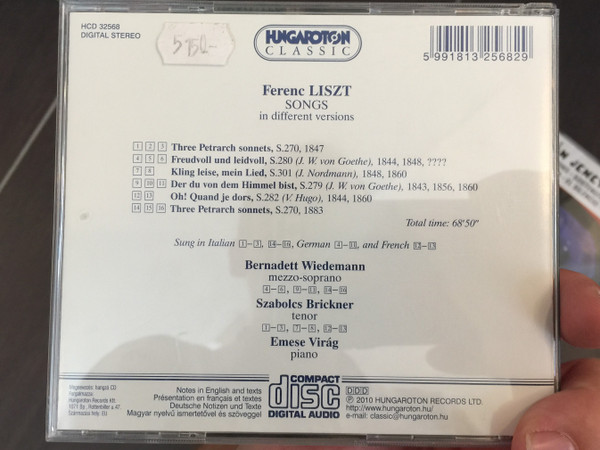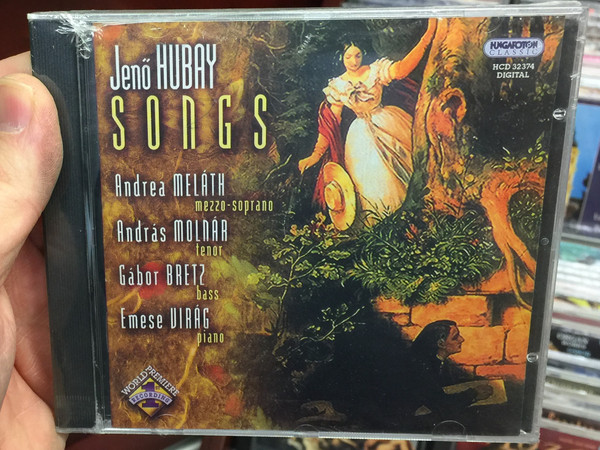Description
Debussy - Songs - Emöke Barath With Emese Virág / Hungaroton Audio CD 2017 / HCD32795
UPC 5991813279521
Made in Hungary
The genre of melodie underwent a great deal of change between Claude Debussys date of birth and the publication of his first songs in 1879. With some simplification, one could say that this was the period when the French song grew to become an established form of high art music, when it left behind the features of the earlier, simpler genre, the romance, once and forever. German models played a pivotal role in this transformation process, as they did elsewhere in 19th century French music. The major impact was made by the refined complexity of Schuberts Lieder, the dramatic treatment of the vocal and piano parts, the idea that the piano accompaniment can be much more than mere acoustic tapestry behind the simple but attractive solo voice and it can be a real partner of the latter. Here the song is a drama involving at least two protagonists. This album features some of the best French songs of the era performed by the wonderful soprano, Emoke Baráth, accompanied on the piano by her former teacher at the Liszt Academy of Music, Emese Virág.
2017. március 10-én megjelent a Hungaroton kiadványa.
Claude Debussy születésétől első dalainak felbukkanásáig jelentős változáson esett át a mélodie műfaja: a zongorakíséretes francia nyelvű dal ebben az időszakban öltött valóban művészi formát és előadási környezetükké a párizsi polgári szalonok váltak.
A francia dalirodalom lemezünkön hallható remekeit a nagyszerű szoprán, Baráth Emőke hangján hallhatjuk korábbi zeneakadémiai tanára, Virág Emese zongorakíséretével.
Előadók:
Baráth Emőke – szoprán
Virág Emese – zongora
Tracklist:
1. Nuit d’étoiles (Théodore de Banville) (3:01)
2. Fleur des blés (André Girod) (2:01)
Fêtes galantes pour Madame Vasnier (Paul Verlaine) (11:57)
3. Pantomime (2:25)
4. En sourdine (3:24)
5. Mandoline (1:34)
6. Clair de lune (2:54)
7. Fantoches (1:40)
8. Fête galante (Théodore de Banville) (2:02)
9. Beau soir (Paul Bourget) (2:21)
10. Les cloches (Paul Bourget) (2:03)
11. Paysage sentimental (Paul Bourget) (2:59)
12. Voici que le printemps (Paul Bourget) (2:30)
13. Apparition (Stéphane Mallarmé) (3:45)
14. Rondeau (Alfred de Musset) (2:32)
15. Musique (Paul Bourget) (1:52)
16. Romance (Silence ineffable...) (Paul Bourget) (2:39)
17. La romance d’Ariel (Paul Bourget) (4:35)
18. Romance (L’âme evaporée) (Paul Bourget) (1:52)
19. Dans le jardin (Paul Gravollet) 2:51
20. Les Angélus (Grégoire Le Roy) 2:01
Trois chansons de Bilitis (Pierre Louÿs) 9:46
21. La flûte de Pan (3:07)
22. La chevelure (3:40)
23. Le tombeau des Naïades (2:59)
| 1 | Nuit D'étoiles | 3:01 |
| 2 | Fleur Des Blés | 2:01 |
|
Fêtes Galantes Pour Madame Vasnier |
||
| 3 | Pantomine | 2:25 |
| 4 | En Sourdine | 3:23 |
| 5 | Mandoline | 1:33 |
| 6 | Clair de Lune | 2:53 |
| 7 | Fantoches | 1:41 |
| 8 | Fête Galante | 2:02 |
| 9 | Beau Soir | 2:21 |
| 10 | Les Cloches | 2:03 |
| 11 | Paysage Sentimental | 2:59 |
| 12 | Voci Que Le Printemps | 2:30 |
| 13 | Apparition | 3:45 |
| 14 | Rondeau | 2:32 |
| 15 | Musique | 1:52 |
| 16 | Romance (Silence Ineffable...) | 2:39 |
| 17 | La Romance D'Ariel | 4:35 |
| 18 | Romance (L'âme Evaporée) | 1:52 |
| 19 | Dans De Jardin | 2:51 |
| 20 | Les Angélus | 2:01 |
|
Trois Chansons de Bilitis |
||
| 21 |
La Flûte de Pan | 3:07 |
| 22 | La Chevelure | 3:39 |
| 23 | Le Tombeau Des Naïades | 2:59 |
- Composed By – Claude Debussy
- Design, Layout [Pre-Press] – Ujváry Béla
- Edited By, Producer [Recording] – Gusztáv Bárány
- Engineer [Balance] – Tímár Domonkos
- Liner Notes – Fazekas Gergely
- Liner Notes [Translation] – Csilla Szabó
- Other [Vocal Coach] – Stefan Verdin
- Piano – Virág Emese
- Soprano Vocals – Emöke Barath
- Text By – Alfred de Musset, André Girod, Grégoire le Roy, Paul Bourget, Paul Gravollet, Paul Verlaine, Pierre Louÿs, Stéphane Mallarmé, Théodore De Banville

